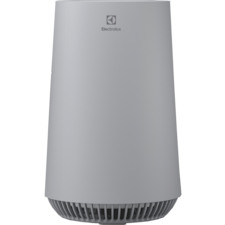Filter
Clear all
-
-
Product type
-
Filter stages
-
Room coverage (m²)
-
SALENew
-
- PureProtect reduces harmful airborne substances¹.
- Low, barely perceptible 19dBA noise level.
- AirSurround purifies room air in just 15 minutes¹.
See more -
-
SALENew
-
- PureProtect reduces harmful airborne substances¹.
- UV-C lights provide additional protection.
- Low, barely perceptible 20dBA noise level.
See more -
-
SALEFREE GIFT
-
- PureProtect neutralises up to 99.99% bacteria¹.
- PureSense measures air quality and adjusts speeds.
- Very quiet operation, even when at maximum speed.
See more -
-
SALEFREE GIFT
-
- 4-step filtration neutralises captured bacteria¹.
- Spiral outlet circulates filtered air¹.
- Quiet operation, even when at maximum speed.
See more -
-
-
- 4-step filtration removes micro-dust and odours.
- Spiral outlet circulates clean air efficiently*.
- Quiet operation, even when at maximum speed.
See more -
-
-
- 4-step filtration removes micro-dust and odours.
- Spiral outlet circulates clean air efficiently*.
- Quiet operation, even when at maximum speed.
See more -
-
-
- PureProtect neutralises up to 99.99% bacteria¹.
- PureSense measures air quality and adjusts speeds.
- Very quiet operation, even when at maximum speed.
See more -

No product found
There are currently no products for this category
We couldn't find any results for your search. Try clearing some filters and try again.
In today’s modern environment, air purifiers have become more important than ever. They protect us and our families from harmful particles in the air and allow us to enjoy fresh air in our homes. Considering the air pollution as well as the allergens many of us have to deal with on a daily basis, air purifiers can be a literal life saver.
How does an air purifier work?
The operating principle of all air purifiers is basically the same. First, they pull in the surrounding air inside your room. The air then passes through different filters inside the purifier which keep pollutant particles from passing through. After filtering, the air is then blown back into the room. With the air purifier keeping up the filtering as an ongoing process, the air in the room is filtered and purified repeatedly until only clean air remains.
What pollutants are filtered out by air purifiers?
Air purifiers with a HEPA filter can remove particles of sizes down to 0.2-0.3 microns from your air. That’s incredibly small, and easily covers pet hairs, fine dust, mold, pollen, and even many bacteria and viruses.
Filter types used in air purifiers
-
Prefilter: The job of a prefilter in an air purifier is to catch larger particles floating in the air. This may be especially important for people with pets in their home, since catching pet hair is one of its main duties.
-
HEPA filter: The High Efficiency Particulate Air or HEPA filter is absolutely essential for a good air purifier. As mentioned above, it can catch tiny particles like fine dust and harmful mold spores. Note that some air purifiers will be advertised as using “HEPA-type” filters, which often don’t meet the same standards.
-
Activated carbon filters: Many air purifiers also include activated carbon or charcoal filters. These filters are designed to capture smells as well as gases. If you suffer from asthma, an air purifier with an activated carbon filter may bring you some relief.
-
UV and ion treatment: Some manufacturers of air purifiers also include UV lights and ionizers in their air purifiers.
Choosing an air purifier for your room size
One air purifier is usually only used in a single room, and its size has to be in relation to the size of the room in which it will be used. Air purifiers usually show the size of room for which they are suitable on their packaging, but it’s often worth it to go for an air purifier that’s advertised for a larger room than yours.
Air purifiers also come with a CADR rating which tells you how many cubic feet of air they can clean per minute.
Noise level
Noise levels can vary a bit between air purifiers, so make sure to read the specifications before you buy a device. If you want to use it in a nursery or a bedroom, be especially conscious of noise levels to ensure good sleep.
Check the decibel ratings in the product description to make sure. Devices with a maximum noise level of 50dB or lower should usually be fine to use in any room.
Enjoy clean air with Electrolux air purifiers
Electrolux air purifiers like the Pure A9 deliver fresh and clean air at low noise levels, while also neutralizing 99.99% of airborne bacteria. And with the unique PureSense system that continuously monitors air quality and adjusts its own air flow rate accordingly, you can always enjoy fresh air without any hassle.
Compare product✕
Add at least 1 more product to start comparison.
Compare product✕
Only 4 products can be compared.
Remove one product to add this in.







